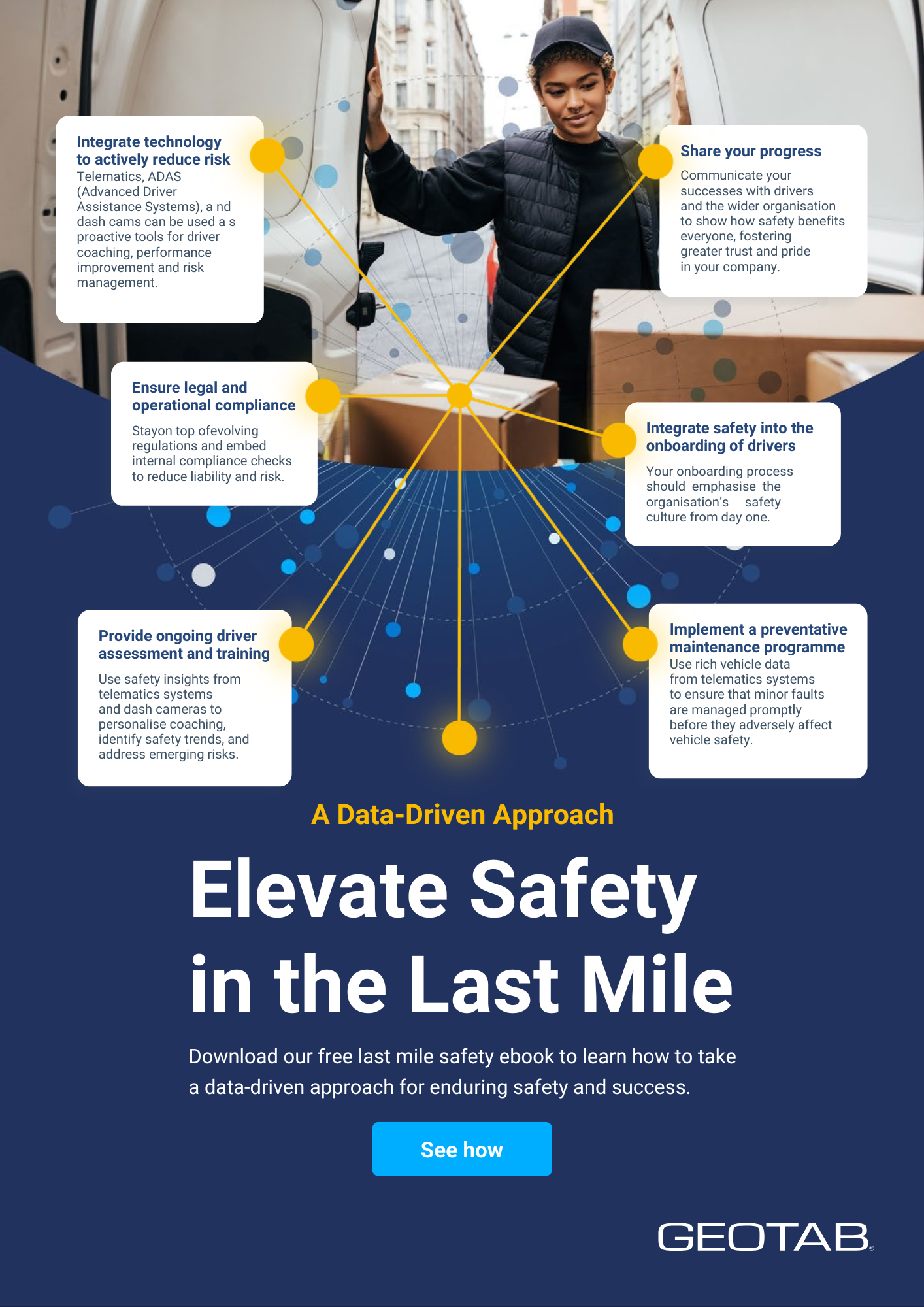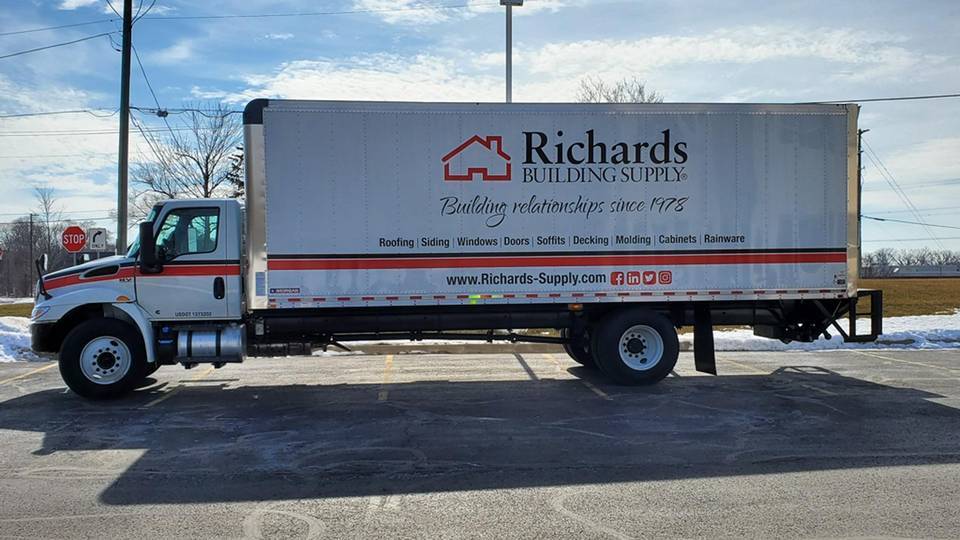How last mile fleets can use telematics insights to enhance safety

Oct 23, 2025
.jpg)
The last mile sector is under more pressure than ever. As demand for home delivery continues to rise, many fleet operators are now having to adapt to larger operating areas and increasingly complex logistics. For drivers, this can mean longer shifts, more stops, and more stress. When workloads are high and margins are tight, safety risks tend to rise. This is especially the case in busy urban areas, where a single mistake can have serious consequences.
This evolving landscape calls on safety teams to develop data-driven programmes that proactively identify and reduce risk. By using telematics insights to spot emerging trends, pinpoint high-risk behaviours, and strengthen training and response protocols, last mile fleets can better protect their drivers and enhance operational performance.
In this blog article, we look at how a proactive safety culture can benefit the entire organisation, and consider the fundamental elements that such a programme should include.
The returns on safety
Fleets that prioritise safety often find that the benefits extend far beyond reducing incidents. A robust, data-informed safety programme helps build a culture where drivers feel genuinely valued and protected. This not only keeps people safe but also improves morale, strengthens retention, and makes the business more attractive to new talent. When drivers see that their wellbeing is taken seriously, it fosters trust, loyalty and a shared commitment to safer operations.
At the same time, the business case for safety is clear. Fewer collisions mean lower costs – from repairs and vehicle hire to downtime and medical expenses. As insurance claims decrease in frequency and severity, fleets may also benefit from reduced premiums. Safer vehicles require less reactive maintenance, and smoother driving improves fuel efficiency, which cuts costs and emissions simultaneously. In many cases, the effects are transformative: a mature safety culture boosts not just performance, but also professionalism, sustainability, and reputation.
The essential elements of a solid safety programme

Lasting safety is built on actionable insights
Fleets that treat safety as a core business priority will reduce collisions, protect lives, and strengthen their operations. A safety-first mindset then becomes a competitive advantage. Telematics insights help safety teams to turn strategy into action. From identifying early warning signs to uncovering systemic risks, teams gain the clarity to act quickly and effectively. Reactive processes can evolve into proactive systems that protect the business and its employees from the increased demands placed on it. In today’s high-pressure last mile environment, data-driven safety is a must.
Download our free last mile safety ebook to learn how to take a data-driven approach
for enduring safety and success
Subscribe to the Geotab Blog

Senior Marketing Specialist, SWE at Geotab
Table of contents
Subscribe to the Geotab Blog
Related posts
.jpg)
How dash cams protect your drivers and your business: a practical guide
March 4, 2026
5 minute read

Official guide to the Geotab Innovation Awards – Europe
February 24, 2026
2 minute read
.jpg)
6 proven ways to reduce fleet costs and boost efficiency with GPS tracking
February 13, 2026
3 minute read

The fleet safety incentive programme checklist for driver engagement that lasts
November 26, 2025
2 minute read

The First 40 Days: How Richards Building Supply is rewarding safety and seeing driving improvements
November 20, 2025
2 minute read
